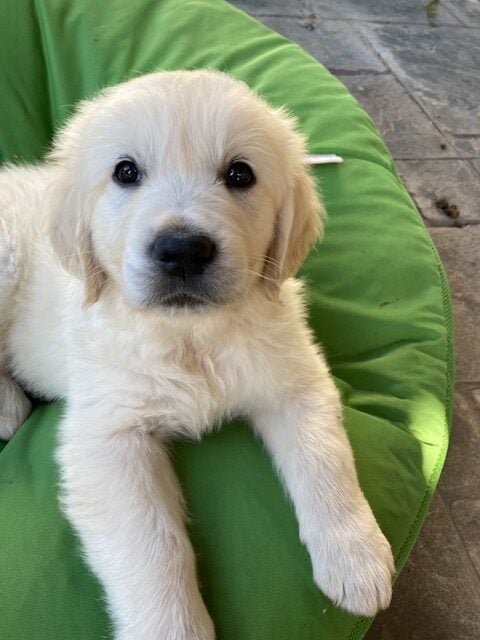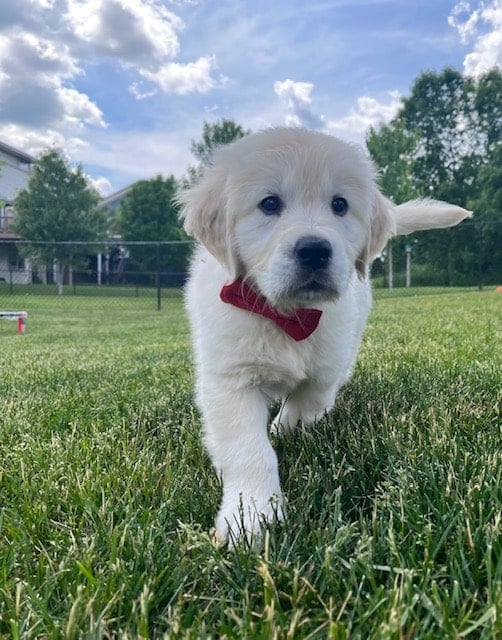Update your browser for more security, speed and the best experience on this site.
Choosing a reputable breeder
Adding a dog to your family is a big decision! We hope you will consider adopting from RAGOM or another rescue organization.
One million dogs this year in rescue groups and shelters will be euthanized because there aren’t enough families willing to adopt them. Consider adopting one of them as your first choice!

 Red flags when buying a puppy
Red flags when buying a puppy
- You’re not allowed to see where the dogs live
- You’re not allowed to meet both the mother and father of your puppy
- The breeder has many different breeds of puppies available
- The breeder wants to meet you in a parking lot to sell you a puppy
- The breeder doesn’t interview you to ensure you are prepared to give the puppy the care they need
 Why “papers” don’t mean you’re buying from a reputable breeder
Why “papers” don’t mean you’re buying from a reputable breeder
Unfortunately, those papers simply mean that both of the puppy’s parents were the same breed and that the breeder was willing to pay the AKC a small fee for a certificate.

 Questions to ask before buying a puppy
Questions to ask before buying a puppy
Can I tour your full property to see where all the dogs live?
Why: You’ll see how and where the dogs are kept.
Can I meet both of the puppy’s parents?
Why: A reputable breeder will allow you to meet the puppy’s parents to ensure they are healthy, well-cared for, and socialized.
How have the puppies been socialized?
Why: The first weeks of a puppy’s life are a critical window for their development. The puppies should be introduced to a variety of people, gently held, and get used to having their paws and ears touched. They should be exposed to different objects, sounds, and environments.
What health tests have the parents received? Can I see the veterinary records?
Why: Responsible breeders will perform breed-specific health tests to minimize the risk of genetic disorders.
What veterinary care has the puppy received? Can you provide the paperwork?
Why: A good breeder will ensure the puppy has received all necessary veterinary care, including vaccinations and deworming.
How often do you breed your dogs?
Why: A dog should be bred once a year at a maximum, and not breed after they six years old.
What happens to your dogs when you no longer use them for breeding?
Why: Instead of euthanasia, a humane breeder will find a loving home for their retired dogs or allow a reputable rescue organization to rehome them.
How do you ensure the health and genetic variation of your dogs?
Why: Responsible breeders will carefully research pedigrees to avoid inbreeding.
What is included in the puppy’s contract? Will you take the puppy back if needed?
Why: You should receive a contract that outlines the breeder’s responsibilities and yours, including health guarantees. A quality breeder will take a puppy back for any reason.

Photo from USDA inspection record of licensed breeder. A license does not guarantee you’re buying from a reputable breeder.
Photo from USDA inspection record of licensed breeder.
A license does not guarantee you’re buying from a reputable breeder.
